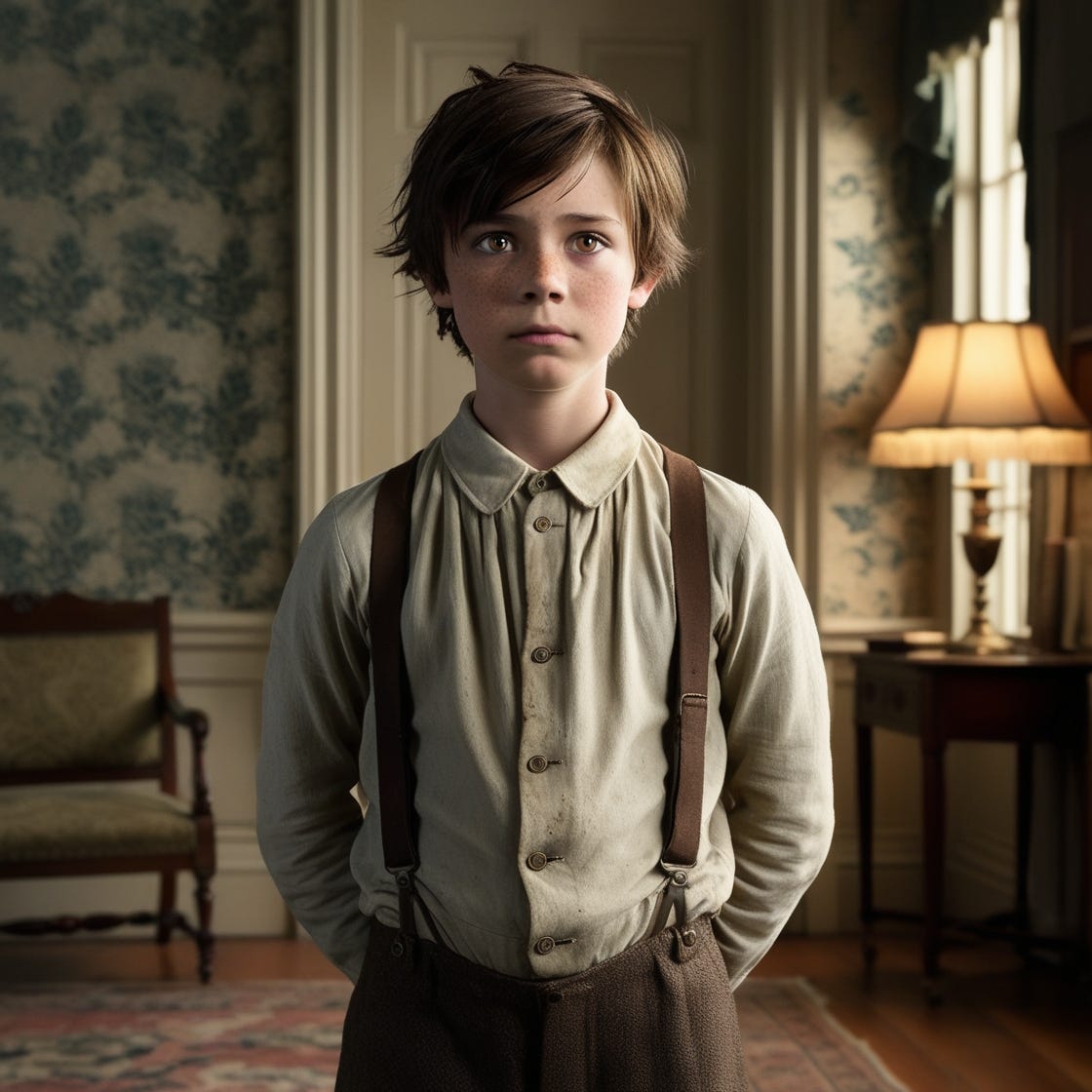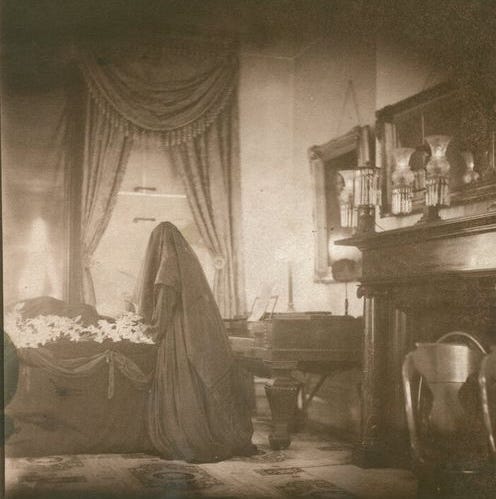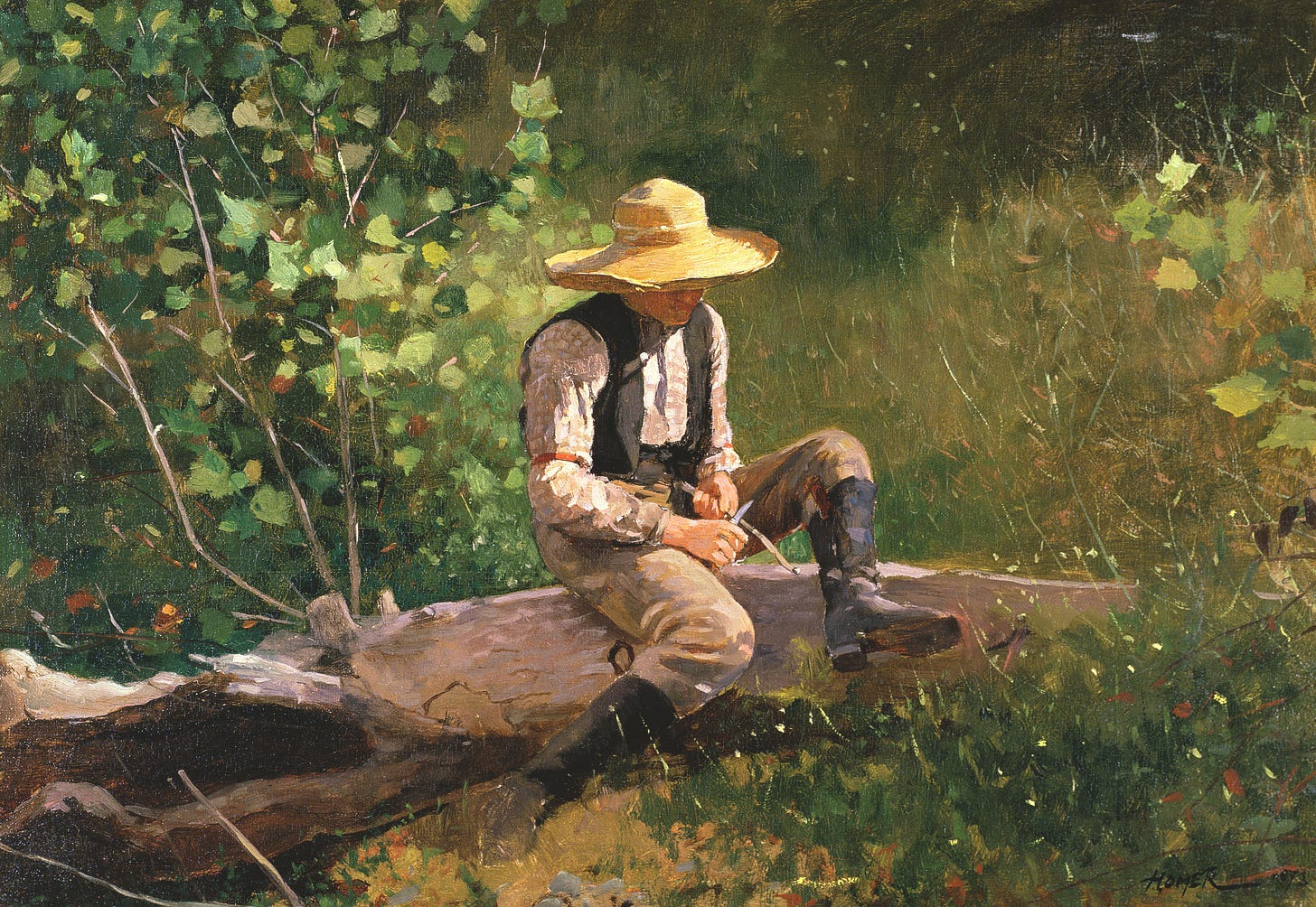A Father's Testimony
Part 8: The Buckfoot Gang
I’m taking a moment to explain a bit of backstory. I initially researched this family two years ago for a TikTok video after finding the newspaper accounts. Sometime later, I found an interesting story about the Buckfoot Gang in a different part of Missouri. I quickly realized…it’s the same family! We’re near the end of this portion of the tale, but it is the dawn of this particular Boatright line’s escapades.
Robert M. Boatright must have felt a surge of déjà vu as he took a seat on the stand. He had been the current witness giving testimony when his son entered the courtroom and killed Charles Woodson in the defendant’s seat the year prior.
The defense called many witnesses whose purpose was to provide testimony toward proving to the jury their client was insane. It may be a testament to the times that, based on the evidence given here, epilepsy was equated with insanity.
Mr. Boatright is back on the stand and his own son, Robert P., is now the defendant. First, Mr. B. confirmed he was the prisoner’s father. He claimed he had both a sister (Ann) and a brother who were “afflicted in mind.” He spent quite some time describing his sister’s convulsions which could clearly be attributed to epilepsy as had been mentioned previously. He claimed she had at least three seizures a day for the last 2-1/2 years of her life. Ann suffered injuries during her seizures, such as broken bones and cuts.
He said one of his brothers had experienced a convulsion when he was around twelve or thirteen, with two subsequent episodes after which they stopped. He then describes the physical appearance of both that sister and brother: both had coarse, black hair, dusky complexions, and foreheads shaped like that of his son’s. He said his son looked like that brother.
The questions put to Mr. Boatright told the story of a sister and brother with a mental affliction and he attributed his son to the same ‘insanity’ because he resembled them. At the end of his testimony, Robert did specifically refer to his siblings’ illness as epilepsy.
He told the court Robert P. contracted typhoid in January of 1870. He was “very low” for several weeks and was at times “stupid and restless.” Having the fever of a disease such as typhoid could certainly produce that response. Typhoid raged through St. Louis in the late 1860s. By 1870-71, the city constructed a waterworks and created a reservoir.
Of interest is that King Edward VII, before he was King, contracted typhoid in 1871. He was quite ill and the illness reportedly caused him to have high fevers, confusion, and some delirium. He did recover fully without loss of faculty and went on to become King on 22 January, 1901. Typhoid was the cause of death of Edward’s father, Prince Albert, husband of Queen Victoria.
Mr. Boatright said Robert recovered slowly and it was then that he “grew suddenly” and seemed not to have a mind. Robert would have been about 11 years old, so probably this was a growth spurt. It wasn’t clear from the article if the witness was implying it had something to do with Robert’s state of mind or was simply mentioning it. He reported that Robert had “several fits,” one that lasted a minute and a half, and that he would often drop his utensils while at the dinner table.
He continued by saying Robert had ‘spells’ after which his recollection suffered greatly, to the point where he couldn’t remember the conversations he’d had during the spell and his mother “got to where she stopped asking him to do things.” Mr. Boatright says he tested Robert on this several times and determined that he was “unconscious” during the spell. The word ‘unconscious’ was used by more than one witness and, at least in some instances, appeared to mean unaware of one’s actions, not listening to what is being said, or confused rather than completely non-responsive.
Robert had no interest in anything. He would read a few lines and then set the book aside. Mr. Boatright said that prior to his illness, he had been “everything to make me proud of him,” but that afterward, “I was anything but proud of him.” Harsh testimony from a parent, especially if the perceived disappointment was a result of the effects of an illness, physical or mental.
Contrary to being watched closely, Mr. B. said one evening after pleasant conversation between Robert and his parents, the defendant got up and left the house with neither coat nor hat and was gone for 4-5 days. When he returned, he never said where he had gone or what he had done and would not answer when asked about it. He repeated this behavior one other time. I think we can surmise from this and other witness testimony that Robert was seldom, if ever, under any type of home confinement.
Mr. Boatright proceeded to talk about Oscar, Robert’s older brother who was killed in 1874 after being hit in the head with a rock by Charles Woodson. I have discovered precious little about Oscar other than he was two years older than Robert and the information surrounding his death, so this is the only personal description I’ve seen so far. He was listed in a single city directory, that of 1874, but no occupation was given. His brother was listed as a bricklayer.
Mr. B. said Oscar felt he was responsible for Robert and became his companion and protector. Oscar “controlled and advised” his younger brother. This sounds mature and brotherly of Oscar, if this was the case.
The testimony quickly shifts back to Robert, saying he tended to be destructive of his clothing. Once after obtaining a new suit, he sliced and shredded one leg of the pants. When walking, rather than go around a mud puddle, he’d step right in the middle of it. He was known to play with very young children rather than those of his age.
After Oscar was fatally injured, he survived for several weeks but was confined to his bed. During that time, Robert would stand around the house with what we often call the thousand-yard stare. Contradictory to the brothers’ close relationship, between the time of the incident and Oscar’s death, Robert took no notice of his brother.
An incident occurred the day after Oscar died. His body was lying in his coffin in the family parlor. Home wakes were customary for the time; the funeral industry had not yet glommed on to the big money to be had by normalizing extravagant funerals, accoutrements, services, and burials. Mr. B. says he noticed a drop of blood escape from one of Oscar’s nostrils. He said he took out a handkerchief and wiped the blood away. Robert came to him and said, “Never mind that, pa, perhaps it will help his head.”
Mr. Boatright said he’d seen Robert strike his brother, and more disturbingly, a lady. The brothers were playing ball when Oscar faked a throw to Robert but instead threw it to a nearby woman. The woman wasn’t identified and it wasn’t explained if she knew the ball was coming or not, but she appears to have caught it, or at least picked it up. Robert was said to have walked over to the woman and struck her. Mr. Boatright said he worried that his son would never recover. Before typhoid, the two brothers had been in the same class at school but Robert had fallen behind after his illness.
The knife which was the murder weapon was then shown to Mr. Boatright. He identified it as having been Oscar’s. He had seen his eldest son cutting the notches into the grip, whittling his initials on the handle, and sharpening the blade. Previously, the initials carved into the handle were reported as Robert’s, but the boys’ father said the initials were OJB (Oscar Jackson Boatright). Whether it was intentional symbolism, who can say, but Robert used his brother’s knife as the murder weapon to avenge his death.
Court adjourned for the day.









Interesting story, as all that you post. Thanks.